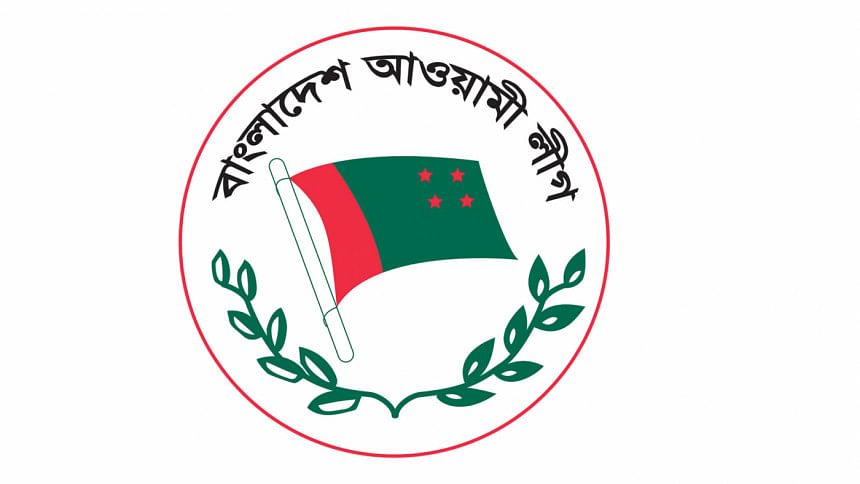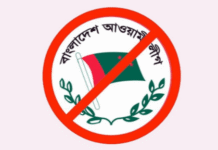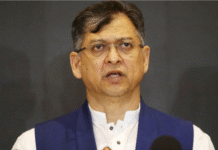
Over the first six months of this year, there were on average more than two incidents of infighting every day in Awami League. These conflicts accounted for 94 percent of the total 440 incidents of political violence during the same period.
Only two of those incidents of political violence occurred when the ruling party men clashed with the activists of its archrival BNP and main opposition Jatiya Party, according to statistics of Ain o Salish Kendra (ASK), a legal aid and rights organisation.
In the six months, 35 people were killed due to AL infighting, which is 85 percent of the 41 people killed in political violence.
The ASK data included incidents of violence centring the national, upazila, and union parishad polls.
Faruq Faisal, executive director of ASK, said most of the incidents of electoral violence took place between different AL factions as the party decided to allow its ranks to run to make the elections look participatory amid boycott by major opposition political parties.
According to ASK, around 202 AL leaders, activists and supporters were killed in clashes over internal feuds in six years until May 2024.
This data clearly shows how the ruling party faced opposition from within in absence of activities of its political opponents.
“Awami League has become its own opponent as the major opposition parties are staying away from the polls and streets. The intra-party conflicts are happening mainly over establishing supremacy and gaining financial benefits,” Faruq told The Daily Star.
He said conflicts within the AL’s grassroots intensified following the party’s decision to allow all its aspirants to run as independents in the January 7 parliamentary polls. The situation worsened following the upazila parishad elections.
On the sixth upazila parishad polls, civil society platform Shushashoner Jonno Nagorik (Shujan) on July 4 said AL grassroots leaders have become further apart as several party men ran for chairman in almost all upazilas. It said the situation may get worse.
Asked about the reasons behind the intra-party feuds, several senior AL leaders blamed party leaders’ desperation for winning polls, establishing supremacy, securing party posts, and rivalries between party lawmakers, local leaders, independent MPs and the newly elected upazila chairmen.
They said internal feuds have caused the organisation to reach a point where some leaders cannot even tolerate their party colleagues.
The senior leaders said the AL high-ups are trying to restore discipline, but it might be tough.
Infighting within the ruling party became so grave that Prime Minister Sheikh Hasina had to ask the home minister to ensure arrests of all those linked to clashes and killings within the AL.
In a meeting on July 8, AL leaders and several ministers said that intra-party conflicts have become the party’s main cause for concern.
Sources said the ruling party is going to take some drastic measures. The AL organising secretaries have been asked to identify the party units that have internal feuds and those responsible, and report to the AL high-command.
Top AL leaders will tour different districts, hold talks with the leaders of the troubled units and summon leaders to Dhaka, if required, to end the disputes. If necessary, the party will take organisational actions against errant grassroots leaders, the sources added.
AL Joint General Secretary AFM Bahauddin Nasim said intra-party conflicts within a big party like AL are “quite normal”.
“But we will not spare anyone if party discipline is violated. We will do everything needed to restore discipline in the party,” he told The Daily Star.
Conflicts within the AL became a common occurrence as different factions clashed over establishing political dominance, rivalries, taking control of illegal sand business, controlling bus and autorickshaw stands, business establishments, land, and party offices.
Rabiul Islam, 42, chairman of Sarapur Union Parishad under Khulna’s Dumuria upazila and also a local AL leader, was shot dead on July 6.
Rabiul’s wife Shayla Erin filed a case with Dumuria Police Station saying her husband might have been killed over political rivalry.
Police arrested local AL leader Asgar Bishwas in the case. Asgar ran for Dumuria upazila chairman and Rabiul reportedly took a stance against Asgor.
On July 7, HM Suman Haldar, chairman of Panchgaon Union Parishad under Munshiganj’s Tongibari upazila and also a local AL leader, was shot dead due to a rivalry over the election to a school managing committee.
Police arrested three people in connection with the murder. The three are involved in AL.
On June 22, at least 30 people were injured in a clash between two AL factions in Rajshahi’s Bagha upazila. Of the injured, Ashraful Islam Babul, upazila AL general secretary, died of his wounds on June 26.
Police arrested Bagha municipality Mayor Akkas Ali, also a district AL leader, in connection with the murder.
A recent report by Bangla daily Prothom Alo said clashes between AL or pro-AL men left 51 people dead in Bogura over the last 15 years.
The report cited establishing dominance, rivalries over securing party posts, control over narcotics trade, control over establishments, extortion in the transport sector, and control over sand trade as the reasons behind the clashes.
A top Bogura AL leader said, “No visible steps are taken to end the longstanding intra-party feuds.”
He said grassroots leaders and activists used to maintain close contact with their respective unit leaders and also follow their instructions because their recommendations were necessary for them to win party tickets for local government polls.
“But as Awami League decided not to field party candidates in the local government polls, party men who ran as independents created their own groups of supporters. This ultimately weakened the chain of command,” he observed.
daily star









